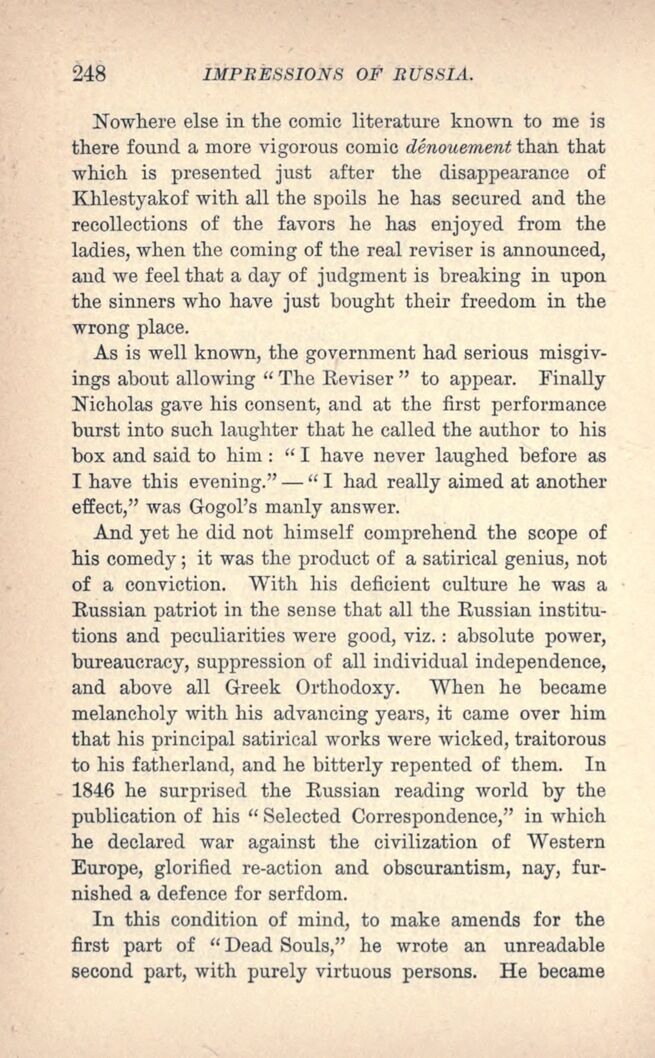
Full resolution (JPEG) - On this page / på denna sida - Impressions of Russian Literature - IV

<< prev. page << föreg. sida << >> nästa sida >> next page >>
Below is the raw OCR text
from the above scanned image.
Do you see an error? Proofread the page now!
Här nedan syns maskintolkade texten från faksimilbilden ovan.
Ser du något fel? Korrekturläs sidan nu!
This page has been proofread at least once.
(diff)
(history)
Denna sida har korrekturlästs minst en gång.
(skillnad)
(historik)
Nowhere else in the comic literature known to me is
there found a more vigorous comic dénouement than that
which is presented just after the disappearance of
Khlestyakof with all the spoils he has secured and the
recollections of the favors he has enjoyed from the
ladies, when the coming of the real reviser is announced,
and we feel that a day of judgment is breaking in upon
the sinners who have just bought their freedom in the
wrong place.
As is well known, the government had serious misgivings
about allowing “The Reviser” to appear. Finally
Nicholas gave his consent, and at the first performance
burst into such laughter that he called the author to his
box and said to him: “I have never laughed before as
I have this evening.” — “I had really aimed at another
effect,” was Gogol’s manly answer.
And yet he did not himself comprehend the scope of
his comedy; it was the product of a satirical genius, not
of a conviction. With his deficient culture he was a
Russian patriot in the sense that all the Russian
institutions and peculiarities were good, viz.: absolute power,
bureaucracy, suppression of all individual independence,
and above all Greek Orthodoxy. When he became
melancholy with his advancing years, it came over him
that his principal satirical works were wicked, traitorous
to his fatherland, and he bitterly repented of them. In
1846 he surprised the Russian reading world by the
publication of his “Selected Correspondence,” in which
he declared war against the civilization of Western
Europe, glorified re-action and obscurantism, nay,
furnished a defence for serfdom.
In this condition of mind, to make amends for the
first part of “Dead Souls,” he wrote an unreadable
second part, with purely virtuous persons. He became
<< prev. page << föreg. sida << >> nästa sida >> next page >>